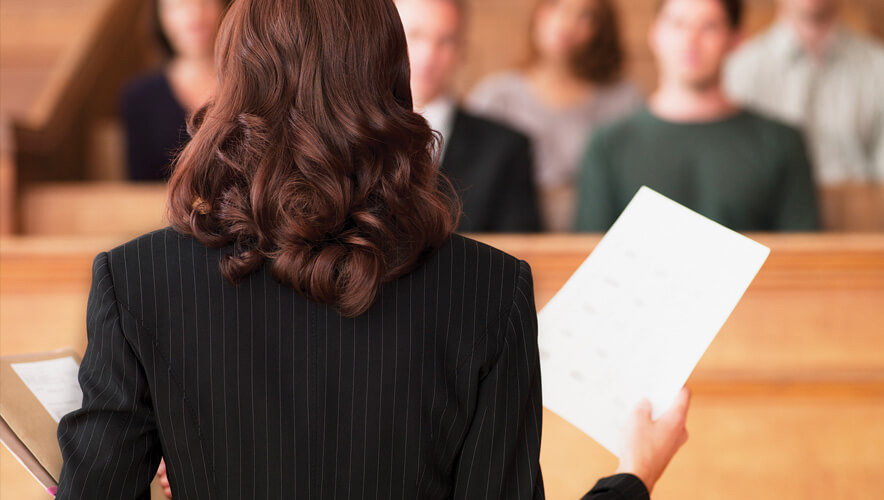Security Experts in the Courtroom
Juries, judges, and lawyers are not security experts. To clarify the finer points and explain industrywide practices and standards of care, expert witnesses can be hired to study the case and testify in court or in deposition hearings, either against or in defense of the defendant’s security measures.
According to Russell Kolins of the Kolins Security Group, the expert witness is present to advocate for his or her opinion about the case—not one side or another—so working with an expert with integrity, consistency, and a diligent commitment to following forensic methodology is essential. Hiring an expert with an inconsistent track record of opinions and statements is likely to get the witness’s testimony dismissed from the case.
So how does an expert witness get to trial in the United States? For successful security experts, it’s a matter of following procedure, maintaining integrity, and diligently keeping up with industry standards—all before the judge gavels the session into order.
Introduction
When the lawyer calls, Kolins says a good expert will accept cases based on the merit of the case.
Checking for Conflicts of Interest
In some cases, the expert may have already accepted a job for the other side of the lawsuit, and in others even more complex conflicts can arise, such as prior testimony that could contradict or complicate the expert’s involvement in the new case.
The Thumbnail Sketch
If there are no obvious conflicts of interest, the lawyer briefly explains the outline of the case, and then the expert inquires into any federal, state, or local laws or regulations that may be pertinent to the case. Some cases require more specialized or sector-specific security knowledge, Kolins says, so not every security expert is the right fit.
Taking the Case—or Not
At this stage, the expert weighs the merits of the case as well as the intents of the lawyer when deciding whether or not to take the case. An inexperienced lawyer, Kolins says, may try to tell the expert witness what to say—steering the narrative instead of following the facts of the case. In the long run, this may harm the outcome of the case and the security expert witness’s reputation. “You have to vet the lawyer as much as the lawyer has to vet the expert,” Kolins says.
Prepare for Court Rules and Challenges
Under U.S. Federal Rule 702 regarding testimony by expert witnesses, a witness “who is qualified as an expert by knowledge, skill, experience, training, or education may testify in the form of an opinion or otherwise if the expert’s scientific, technical, or other specialized knowledge will help the trier of fact to understand the evidence or to determine a fact in issue.” Witnesses should be prepared to document their expertise, training, and bona fides in court to establish their qualifications and back up their testimony, Kolins says.
Research
At this point, the expert witness begins to collect relevant sources of information and connect the dots between elements in the case. He or she will start documenting his or her opinions and prepare a report.
It is especially key to remain consistent, particularly with past opinions—including those voiced at trial, in reports, articles, conference presentations, and other publicly available documents. It’s a fair bet that the opposing counsel will have done their due diligence researching the expert in an attempt to catch them in a contradictory statement or cast doubt on their testimony, Kolins says.
Study the Case
Beyond the facts of the case, expert witnesses should study their own findings thoroughly and be prepared for challenges to their memory and opinions. In particular, Kolins says the expert should be ready to explain the standards, research, and methodology behind his or her opinions about the case.
“The expert may be the most knowledgeable expert in the field of security, and that expert will write reports off the top of their head without any backup from resource materials or foundation for those opinions, and think that ‘just because I say it means it has to be true,’” he says. “The fact is, it may be true, but you still have to back it up with the forensic methodology…that means revealing all the materials, doing your research, connecting the dots, conducting a site inspection if feasible, and conducting a crime analysis if it applies to that particular case.”
Read more about security professionals in court in "Security on the Witness Stand" in the July issue of Security Management.
